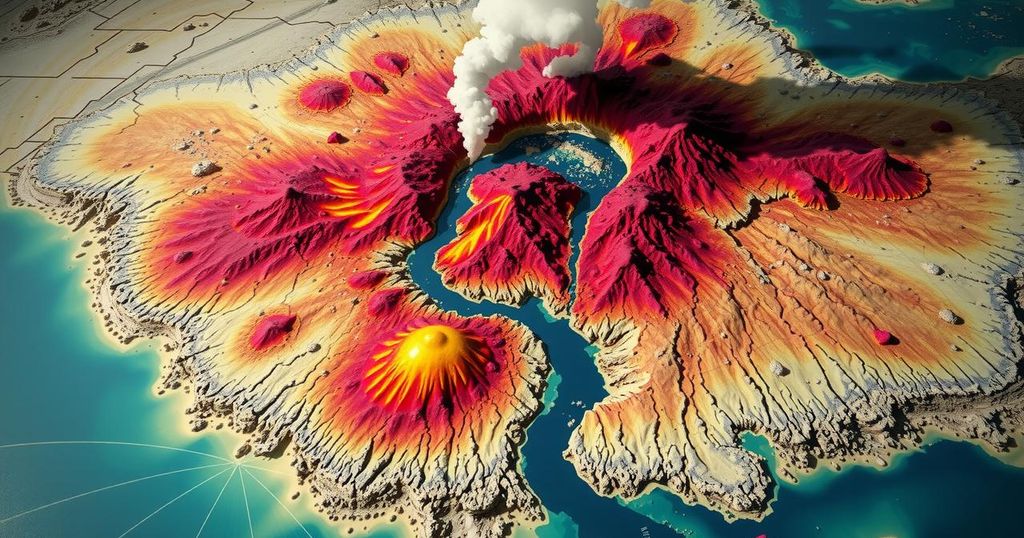Magnitude-5.8 Earthquake and Volcanic Eruptions Strike Ethiopia, Intensifying Geological Concerns

A magnitude-5.8 earthquake struck Ethiopia near Addis Ababa on January 4, 2025, with experts warning of increasing seismic activity. Simultaneously, Mount Dofan erupted, prompting evacuations. Concerns have been raised regarding the Grand Ethiopian Renaissance Dam in light of this geological unrest and ongoing negotiations regarding water rights with Egypt and Sudan.
On January 4, 2025, a significant seismic event registering a magnitude of 5.8 struck Ethiopia, affecting regions near Abomsa and Amhara, which are close to the capital, Addis Ababa. The earthquake’s epicenter was located at a depth of 10 kilometers, as reported by both the Ethiopia Geological Institute and the US Geological Survey. Experts in earthquake research are cautioning that the tremors may continue to escalate in intensity, indicating a worrying trend in seismic activity in the area.
In addition, volcanic activity has been observed at Mount Dofan in the Afar region, with large fissures appearing in the ground, prompting Ethiopian authorities to issue evacuation orders for nearby residents. Abbas Sheraqi, an Egyptian geologist from Cairo University, indicated that the ongoing seismic disturbances might be precursors to more significant geological changes, including increased volcanic eruptions. Sheraqi expressed concerns regarding the implications for the Grand Ethiopian Renaissance Dam (GERD), emphasizing the potential risks due to shifting geological conditions.
Egypt and Sudan have been engaged in lengthy discussions with Ethiopia regarding the GERD’s management, aimed at ensuring equitable water rights for all three nations. Despite these efforts, negotiations have remained stagnant, with Ethiopia continuing to fill and operate the dam without a formal agreement with its neighbors.
Journalists report that Sheraqi’s comments reflect ongoing anxieties surrounding the dam’s integrity during heightened geological activity, particularly for Sudan, which could face repercussions should any disaster arise.
The recent earthquake and volcanic activity in Ethiopia are intertwined with ongoing geopolitical tensions surrounding the Grand Ethiopian Renaissance Dam (GERD). This dam has been a focal point of contention among Ethiopia, Egypt, and Sudan, as it significantly affects water resources in the region. The dam’s filling and operation have proceeded without consensus, causing escalated negotiations that have failed to yield a lasting solution for regional water rights, particularly concerning Egypt’s essential Nile water supply.
The 5.8 magnitude earthquake and subsequent volcanic eruptions in Ethiopia underscore the urgent geological threats facing the region. As authorities respond to the immediate crisis by evacuating residents, concerns remain about the long-term implications for the GERD and the ongoing negotiations between Ethiopia, Egypt, and Sudan. The situation is precarious, necessitating close monitoring and cooperative dialogue to mitigate both geological risks and regional tensions.
Original Source: www.egypttoday.com








